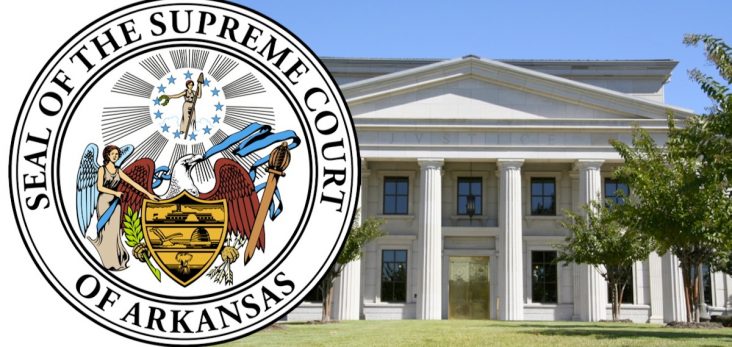Supreme Court denies ballot access for term limits measure
by October 19, 2018 12:02 pm 959 views

Voters will not be voting on tightening legislative term limits this year after the Arkansas Supreme Court Friday declined to reverse a decision by a special master that invalidated signatures collected for the effort.
Following a 4-3 decision, Justice Shawn Womack wrote for the majority that the special master appointed by the Supreme Court, former Judge Mark Hewitt, had not erred in invalidating 14,806 signatures.
The proposed amendment, Issue 3, would have limited legislative terms to two four-year terms in the Senate and three two-year terms in the House. Legislators would have been limited to 10 years of cumulative service.
The sponsor, Arkansas Term Limits, had submitted 135,590 signatures, of which the secretary of state’s office determined that 93,998 were valid. A minimum of 84,859 signatures were required for the constitutional amendment to make the ballot.
Randy Zook, president and CEO of the Arkansas State Chamber of Commerce, filed suit Sept. 5 on behalf of himself and Arkansans for Common Sense Term Limits. The Supreme Court appointed Hewitt as a special master over the case.
Hewitt concluded that Arkansas Term Limits had erroneously included 14,806 invalid signatures. Among those were 4,371 signatures contained on documents that did not include the canvassers’ current residence addresses; 1,998 signatures collected by two paid canvassers who did not execute a sworn statement before collecting signatures; 3,088 signatures that were invalidated because a list of paid canvassers was not properly provided to the secretary of state; and 479 signatures collected by a canvasser with a felony conviction. The Supreme Court found those exclusions to be correct or at least “not clearly erroneous.”
Tim Jacob, a spokesman for Arkansas Term Limits, criticized Friday’s decision by the Supreme Court.
“Corporate censorship of the Arkansas voter has won the day, but we feel that justice will prevail in the long run,” he said. “The same people that deceived the voters with a dishonest ballot title fought hard to keep an honest ballot title away from the voters, but justice will prevail eventually.”
Jacob said term limits supporters will return in two years with another effort.
Joining Womack in his decision were Chief Justice Dan Kemp and Justices Courtney Goodson and Rhonda Wood. Goodson is running for re-election this year against attorney David Sterling.
Justice Robin Wynne was joined in his dissent by Justices Jo Hart and Karen Baker. He wrote that there is no evidence the canvassers who submitted erroneous current addresses did not reasonably consider those to be correct. He wrote that the sworn statement provision is an unwarranted restriction prohibited by the Arkansas Constitution. Of the 3,088 signatures excluded because a list of paid canvassers was not properly provided, 867 should have been counted, he wrote.
Combined, those signatures would have been enough to meet the minimum required for ballot access.
Arkansans for Common Sense Term Limits released a statement from Zook saying, “We’re grateful for the Court’s decision to keep this harmful measure off of the Arkansas ballot. It was being pushed by out-of-state interest groups, and it was NOT in the best interest of our state. Not only did Issue 3’s supporters fail to properly collect the signatures required by law, but the measure would have stuck Arkansans with the most restrictive term limits in our country – a step in the wrong direction.”
A poll conducted Sept. 5-7 by Talk Business & Politics and Hendrix College found the measure had 67% support, while only 18% were opposed and 15% didn’t know.
Arkansas has a recent history of enacting and changing term limits. In 1992, almost 60 percent of voters approved Amendment 73, which limited constitutional officers and state senators to two four-year terms and state House members to three two-year terms. It also limited congressional terms, but those were overturned by the U.S. Supreme Court in U.S. Term Limits, Inc. v. Thornton.
An effort to increase the limit on legislative terms failed in 2004 with more than 70% voting against it, but in 2014 voters approved by 52-48% a wide-ranging “ethics” amendment that, among other provisions, allowed legislators to serve a total of 16 years in either or both the House and Senate. Legislators can actually serve longer, because not included are partial terms and two-year Senate terms served as a result of redistricting changes following the census.
Issue 3’s supporters say legislators hid the term limits extension inside that 22-page amendment, whose title said it would be “establishing” term limits. The term limits provision was on pages 16-17.
